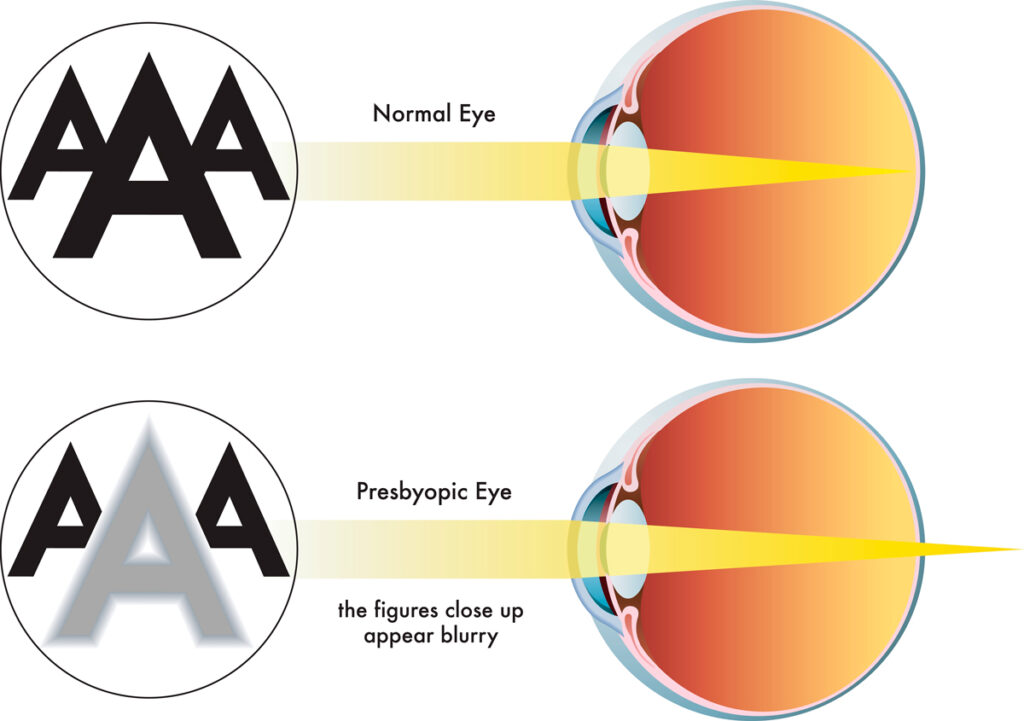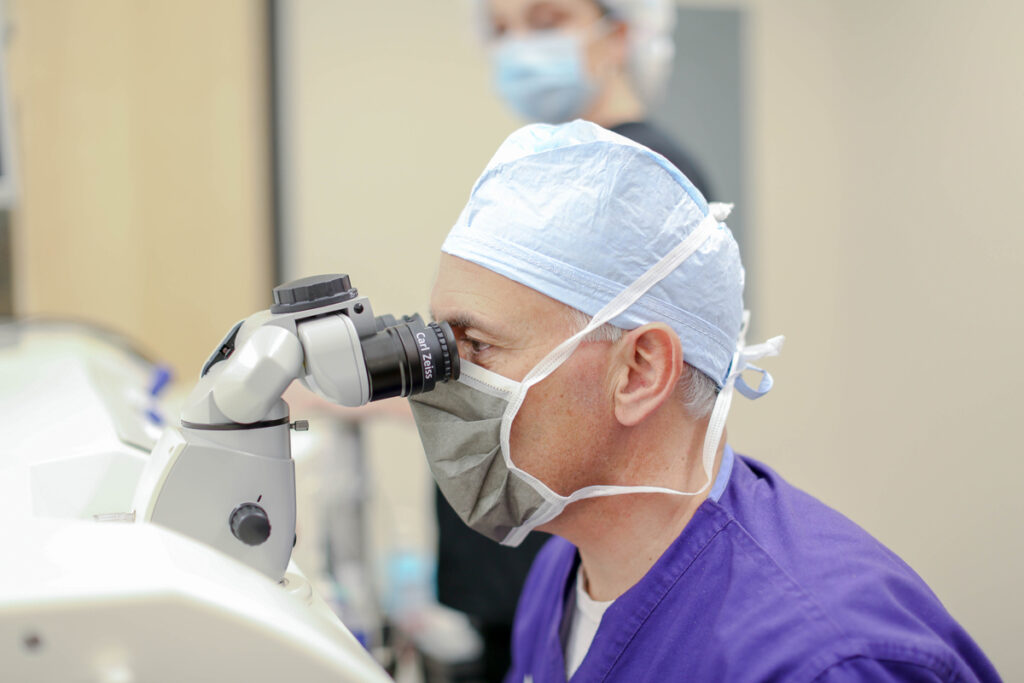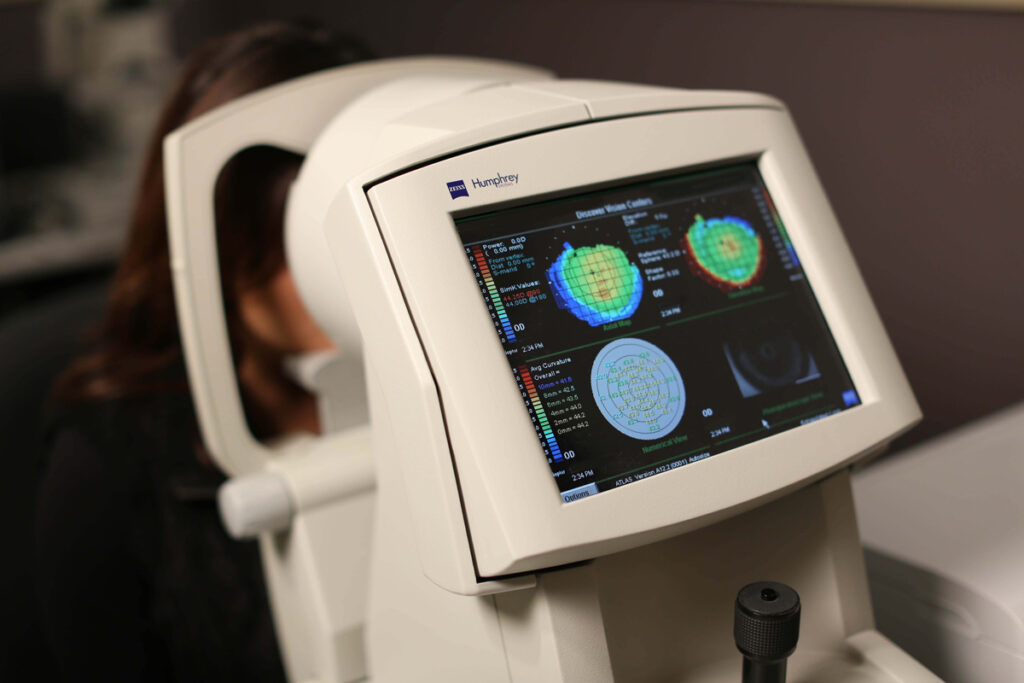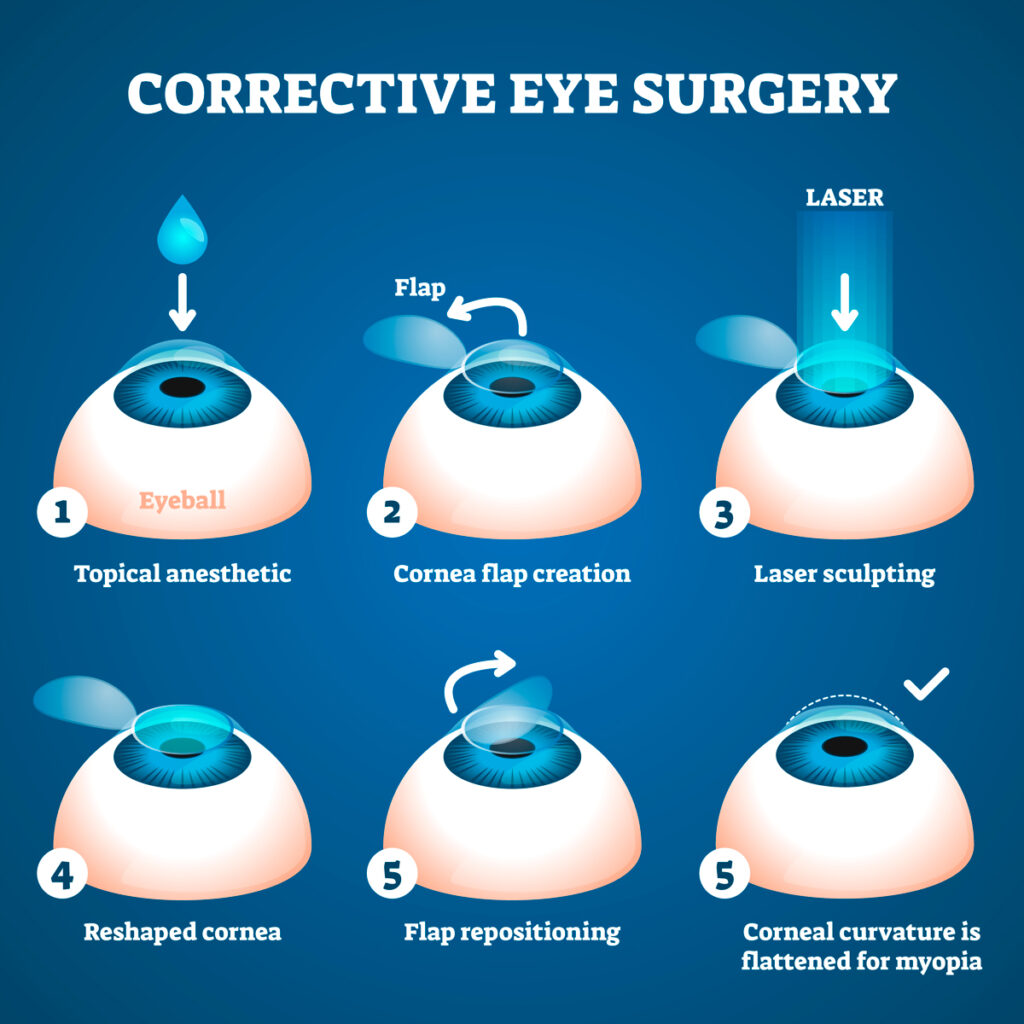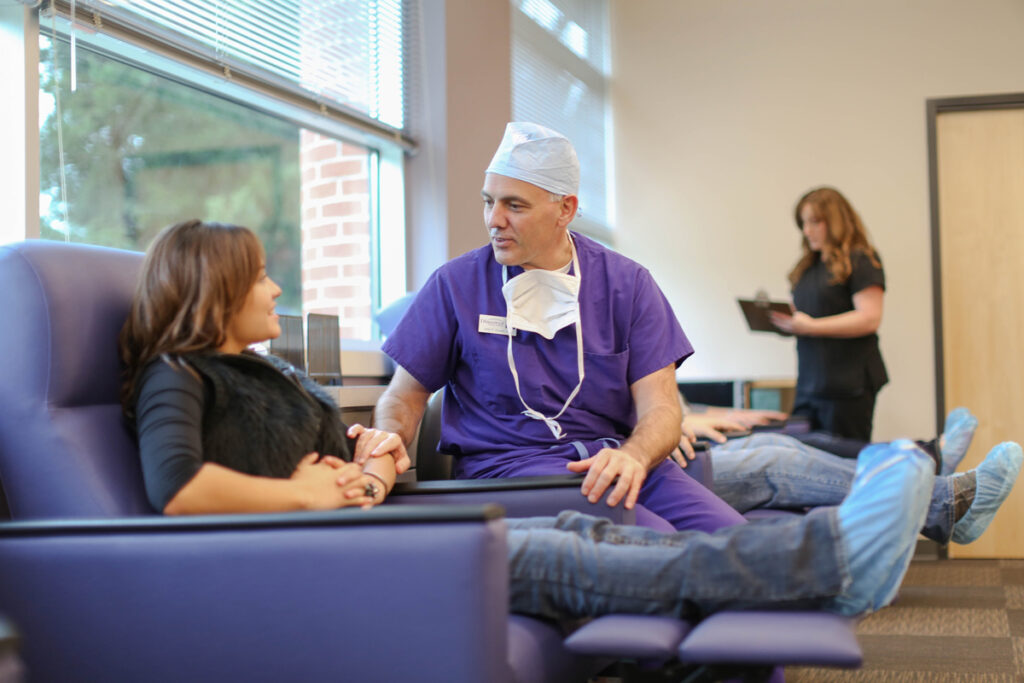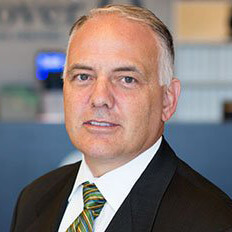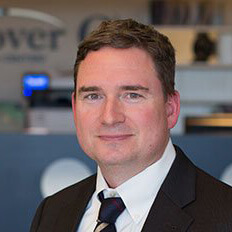
Presbyopia, a common age-related condition, may not always be fully corrected by LASIK. However, a specialized LASIK for presbyopia technique known as monovision offers potential treatment. By addressing farsightedness in the dominant eye and nearsightedness in the other eye, monovision can help achieve visual balance and alleviate issues.
If you’re over 40 and starting to experience trouble reading or seeing things up close, we understand how frustrating this change in your vision can be. Schedule a free LASIK consultation to find out more about vision correction options for presbyopia.

